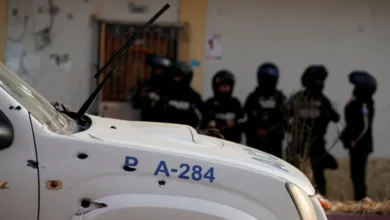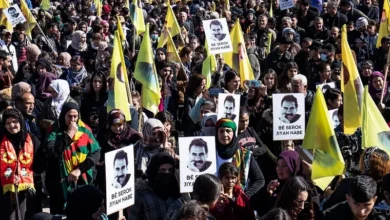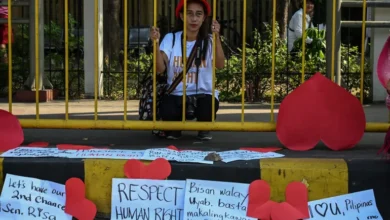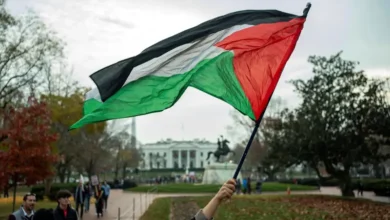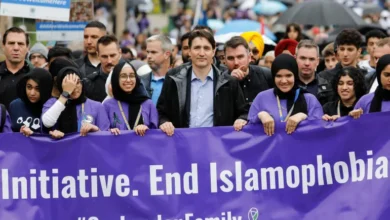Israel’s hawkish Netanyahu faces growing global isolation amid ICC arrest warrant
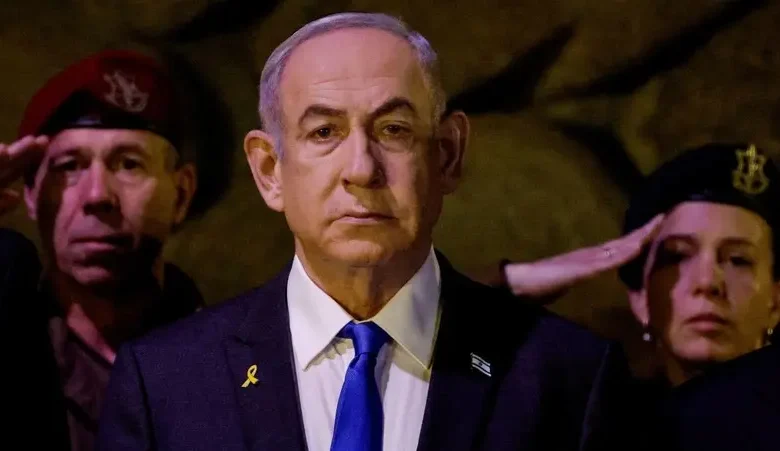
Israel’s hawkish right-wing Prime Minister Benjamin Netanyahu is treading increasingly thin ice after the International Criminal Court’s prosecutor on Monday sought an arrest warrant for him over “war crimes” in Gaza.
The silver-haired 73-year-old, known by his nickname “Bibi”, has dominated his country’s politics for decades but now faces mounting isolation both at home and abroad over his handling of the war against Hamas in Gaza.
Netanyahu has faced staunch criticism for the security failures that led to Hamas’s unprecedented attack on October 7, which resulted in the deaths of more than 1,170 people, mostly civilians, according to an AFP tally of Israeli official figures.
He has remained steadfast in his vow to “eliminate” Hamas, overseeing Israel’s bloody response to the attack that has ravaged Gaza and killed at least 35,562 people, most of them civilians, according to the Hamas-run territory’s health ministry.
The International Criminal Court’s prosecutor Karim Khan said Monday he had applied for an arrest warrant against Netanyahu and his Defence Minister Yoav Gallant for crimes including “wilful killing”, “extermination and/or murder” and “starvation”.
Netanyhau has stood the course in Gaza, sending troops into the far-southern city of Rafah this month in defiance of pleas from Israel’s main international ally, the United States.
“If we have to stand alone, we will stand alone,” Netanyahu said.
Wily strategist
Before the war, Netanyahu was revered by loyal Likud party followers for his stated mission to defend the Jewish people against all threats, from militant groups to arch-foe Iran.
But to his opponents, he was the “crime minister” who, while fighting corruption charges in court, was also leading a push to curb the powers of the judiciary in a way they feared would undermine democracy.
A wily strategist and political survivor, Netanyahu has spent more than 16 years in the prime minister’s office, making him Israel’s longest serving leader. He has also outlived multiple US presidential administrations.
Under his rule, the Israeli-Palestinian peace process of the 1990s has effectively collapsed, while Jewish settlements have been rapidly expanded in the occupied West Bank, eroding hopes for Palestinian statehood.
Netanyahu’s most recent comeback saw him take the reins again in December 2022, after a string of elections and a short-lived multi-party government chiefly united in their strong opposition to him.
This time around, however, Netanyahu’s deepening domestic isolation forced him to team up for the first time with far-right nationalist parties previously considered fringe groups, and ultra-Orthodox lawmakers.
Brother’s death
Born in Tel Aviv on October 21, 1949, Netanyahu is the son of a historian who was active in right-wing Zionist groups, an ideological inheritance that helped shape his political career.
Netanyahu has two sons with his wife Sara and a daughter from a previous marriage.
As a young man in the late 1960s, Netanyahu served in an army commando unit, seeing combat in multiple engagements and reaching the rank of captain.
He was marked strongly by the death of his elder brother Yonatan in a daring 1976 special forces raid to free hostages at Uganda’s Entebbe airport.
In his memoir, Netanyahu recalled that he thought he may “never recover” from the loss: “When the news reached me that Yoni had died in Entebbe, I felt as if my life had ended.”
Raised partly in the United States, Netanyahu graduated from the prestigious Massachusetts Institute of Technology, later working as a business consultant and then as an Israeli diplomat.
He regularly appeared on US television from the late 1980s, defending Israel and raising his profile both at home and abroad.
Back in Israel, Netanyahu became the Likud’s leader in 1993 and led the party to victory in 1996 as Israel’s youngest-ever prime minister, aged just 46.
He lost power in 1999, but regained it 10 years later and stayed at the helm for more than a decade.
‘My ancient people’
Netanyahu has never engaged in substantive peace talks with the Palestinians, instead overseeing a rapid expansion of West Bank settlements that are considered illegal under international law.
He has repeatedly expressed his refusal to allow the Palestinian Authority a role in post-war Gaza.
His government, which includes hardline pro-settlement groups, has also overseen a rise in armed raids against West Bank militant strongholds such as Jenin, which Netanyahu labelled a “nest of terrorists”.
Netanyahu’s other major focus has been fighting arch-foe Iran and limiting its nuclear ambitions, both on the political stage and in a shadow war that has included sabotage operations and assassinations.
But in April, this covert war came into the open.
An air strike — widely blamed on Israel — levelled the Iranian consulate in Damascus and killed seven Revolutionary Guards on April 1.
That prompted Tehran to for the first time launch more than 300 explosives-laden missiles and drones towards Israeli territory.
Close to former US president Donald Trump, Netanyahu clinched a diplomatic triumph by normalizing relations with a number of Arab states under the Washington-brokered Abraham Accords.
He reflected on his role in his autobiography, writing that “as a soldier, I fought to defend Israel on battlefields.
“As a diplomat, I fended off attacks against its legitimacy in world forums, as finance minister and prime minister I sought to multiply its economic and political power.”
Throughout it all, Netanyahu wrote, his aim had been to help “secure the future of my ancient people”.

